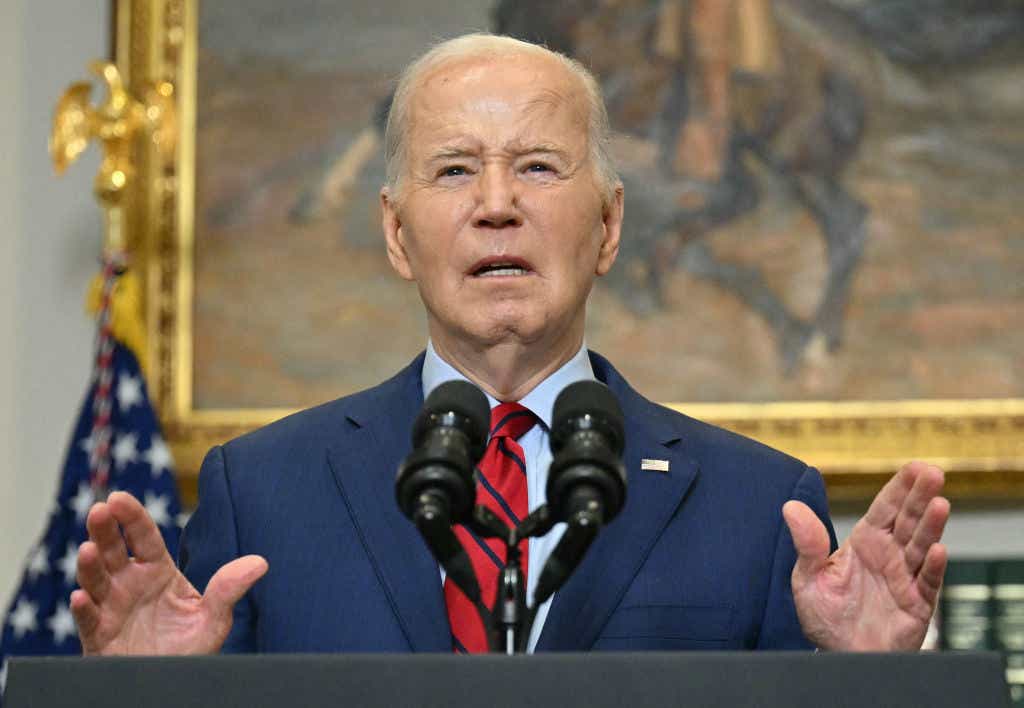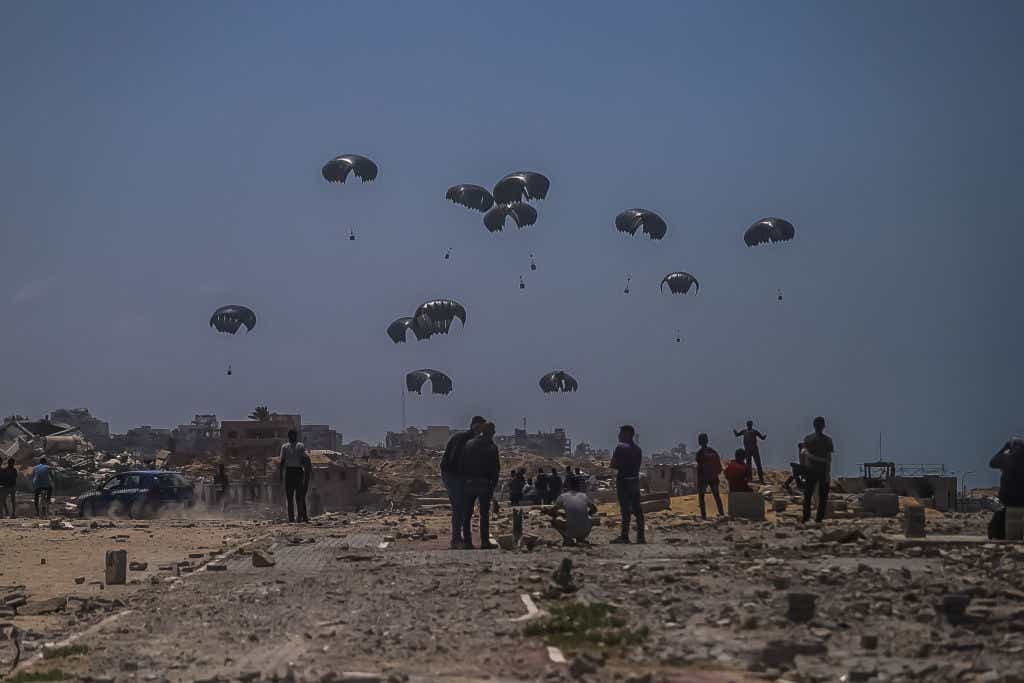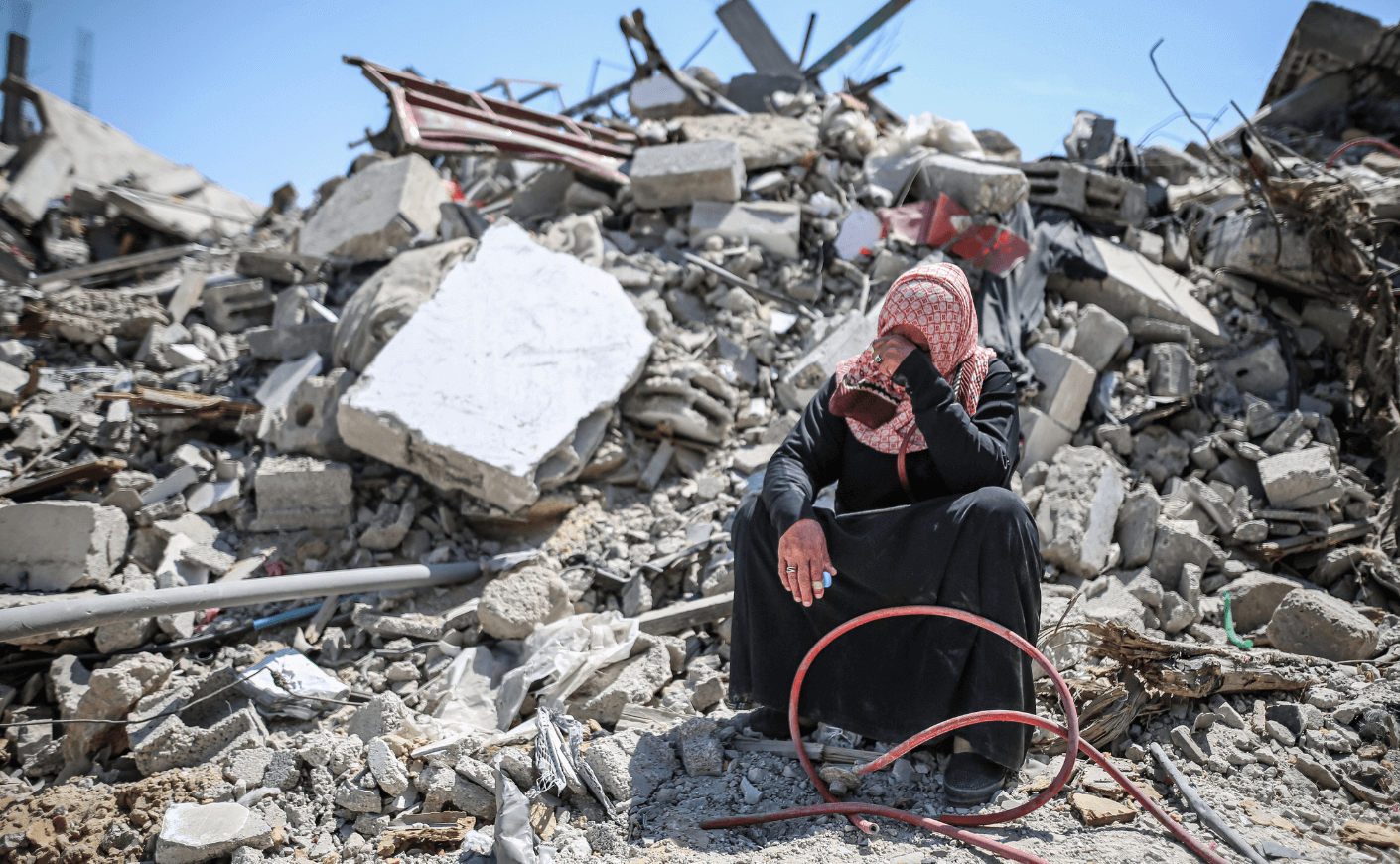Some 30 years ago, the U.S. Veterans Administrations psychiatrist, Jonathan Shay, coined the term “moral injury” to describe an unfamiliar kind of psychological trauma that he was observing in U.S. soldiers who had been in combat: the disabling guilt and shame, the anxiety and depression they felt after they “betray[ed]...what is right,” in a “high stakes” situation where they “held power.”
As a psychiatrist dealing with trauma in the U.S. and abroad, over the last 50 years, I’ve seen and treated this moral injury in American troops returning from combat in Vietnam, Afghanistan, and Iraq, in former combatants in Kosovo and Mozambique, Israel and Ukraine. These men and women had deliberately or inadvertently killed civilians or failed to stop the killing, or followed a combat order that they believed violated the rules of war or their own conscience.
Over the last seven months, as Israel's retaliation against Hamas for its horribly brutal October 7th attack has claimed the lives of 35,000 Gazans, I’ve felt the intense and intimate pain of my own moral injury, as an American whose country has supplied the bombs that have killed so many innocent people, including some for whom I have deeply cared. I have desperately hoped that President Biden, who feels such warm and appropriate empathy for the Israeli victims of October 7th, would extend his capacity for compassion to Palestinian civilians. I have hoped, too, that he would take responsibility for the US’s provision of weapons massively destructive to civilians, and bring all of his, and the US’s, weight to bear on securing the return of the hostages, ending the war, and, indeed, repairing the moral injury from which he, and all Americans, are suffering.

For 20 years, I’ve worked with my Israeli and Palestinian colleagues to bring population-wide trauma healing programs of evidence-based self-care and mutual support to over 350,000 children and adults in Israel and Gaza.
I am deeply moved now by how our Israeli faculty, themselves traumatized and grieving, are working skillfully and generously with overwhelmed survivors of the October 7th Hamas attack and the desperate families of the hostages captured by Hamas. And I’m in awe of the hope and healing that our Palestinian faculty has brought, at great personal risk, to thousands of maimed and orphaned Gaza children and the despairing adults who are precariously sheltering with them, in Rafah and throughout Gaza.
I am glad that my U.S. colleagues and I have been able to support our Israeli and Gaza teams emotionally and financially. But what we are doing feels inadequate, a valuable and necessary adjunct to treatment, but not the invaluable prevention that is required to end the fighting and ensure the return of the hostages.
Like most American Jews, I feel ever more sensitive to the fear, pain, and anger of Israelis who are coping with a collective vulnerability, unprecedented since the Holocaust, as well as losses of friends and family. And, like many American Jews, I grieve the Netanyahu government’s indifference to the fate of Gazan civilians and its gross violation of the Jewish tradition of kindness and compassion for strangers, the “others” who are not enemies, as well as for members of our own tribe.
And, I am daily devastated by the slaughter of innocents in Gaza. Two of our Gaza faculty — Shaher Yaghi, UNRWA’s Coordinator for special needs children and his psychologist daughter, Sumaia — have been killed in their homes, along with 20 members of their family. Two sisters of our program director, psychologist Jamil Abdel Atti, have been killed. And just about all of our 20 faculty — compassionate, peaceful, civilians— have lost members of their extended families and been forced out of their destroyed homes.
Dreams come, unlike any I have ever had in 25 years of work in war zones.
Over the years, I’ve learned that the very nature of moral injury — the shame and guilt it provokes — often makes it harder to recognize or admit, and harder to treat than the trauma for which others (combatants, domestic abusers, etc.) are responsible.
For me, it is now inescapable. Almost every morning I wake too early, and anxiously check WhatsApp, fearing more bad news about Jamil and our team. Dreams come, unlike any I have had in 25 years of work in war zones. They are punctuated by body shaking explosions, by images of burned and maimed Israeli and Palestinian children, and of members of our Gaza and Israeli teams standing mute and solemn, their arms helpless at their sides.
I’ve also seen signs that President Biden has been gradually awakening to his moral injury, a moral injury in which his actions, and inaction, have implicated me and all Americans.
In the first weeks after October 7th, the President understandably responded to the horror and magnitude of the Hamas attack in the context of his and America’s many decades of commitment to Israel as a secure refuge for the Jewish people. He obviously felt on firm moral ground as he used his unique position of power to pledge unconditional support for Israel’s “right to defend itself,” and supplied billions of dollars of weapons to pursue Hamas. Loyal to the Israeli government’s point of view and actions, he doubted the accuracy of Gaza health authorities’ mortality figures and repeatedly ordered vetoes of UN resolutions calling for an immediate ceasefire.
However, on December 8th, as the toll of death and destruction in Gaza mounted, he began to question “indiscriminate” bombings, and, later, to urge the need for “more targeted strikes and a temporary ceasefire.” On February 8th, as the number of Gaza deaths approached 30,000, and the humanitarian crisis deepened, he suggested that Israeli aggression was “over the top.”
These comments indicated the President’s growing doubt about his unconditional commitment to Israel’s military campaign, but they had a tentative, pleading tone. He was speaking as the leader of the most powerful nation in the world and Israel’s preeminent ally, but sounded as if he, who definitely “held power,” was powerless.

The President’s subsequent ordering of air drops of food to Gazans who are starving to death and the construction of a pier to deliver aid were inadequate responses to overwhelming, life threatening needs. Still, they indicated a growing sensitivity to the horrors of Gaza-wide devastation. He was now willing to acknowledge his and the U.S.’s contribution to death and destruction that far exceeded the stated goal of eliminating the Hamas leadership and fighters responsible for the horrors of October 7th. And he was taking concrete steps to relieve a portion of the suffering of Gaza’s 2.2 million civilians.
Meanwhile, here in the U.S., the massive street, university and college protests, and the “uncommitted” ballots in Democratic primaries have held up a moral and political mirror which our President has not been able to avoid. Though at times it has been stained by antisemitic slurs, the basic message of most of the protests is as compassionate as it is insistent. Hundreds of thousands who previously supported President Biden no longer feel they can: Arab-Americans, heartbroken by the deaths of family members and others with whom they share a common culture, and young idealists committed to the qualities of equality, fairness, and decency which Biden had seemed in 2020 to embody.
We begin to heal moral injury when we admit that we have both created it and suffer from it. We continue the healing process as we take steps to redress the wrongs we have done and become steadfast in our refusal to repeat them.
President Biden now seems to be listening more closely to his own conscience, as well as to the suffering of the people of Gaza and the pleas and protests of so many Americans who are withholding their support. His hot mic comment about a “come-to-Jesus moment” that he wants to have with Prime Minister Netanyahu was particularly hopeful, especially since it was made by an observant Catholic. The example of Jesus who cared for the most vulnerable, may well be encouraging our President to recognize his own moral injury and to regret his complicity in the mass killing of children and other civilians.
The U.S. abstention which facilitated the passage of U.N. Security Council resolution for an “immediate ceasefire” was one sign of President Biden’s growing recognition of his and our complicity and responsibility. His insistence on Israeli facilitation of massive and safely delivered aid prompted by his personal pain at the killing of seven World Central Kitchen aid workers who were employees of his “friend,” Jose Andres, was another.
However, for healing to happen, these words and gestures have to be accompanied by ongoing U.S. action: an uncompromising and sustained insistence on the aid necessary to stave off mass starvation and death; successful negotiations for the return of all hostages and a permanent ceasefire; an end to the unconditional supply of offensive weapons; and an unshakable commitment to a multinational reconstruction of Gaza and the creation of a Palestinian state as well as ironclad guarantees of security for Israel.
If our President takes these steps, he will demonstrate that he is capable of fully responding to the pain and aspirations of both Israelis and Palestinians, that he is strong, principled, and compassionate, a man committed to repairing his and our moral injury, a leader who deserves our respect and support.
James S Gordon, MD, a psychiatrist, is the founder and CEO of The Center for Mind-Body Medicine (CMBM), author of Transforming Trauma: The Path to Hope and Healing, and former chair (under Presidents Clinton and G. W. Bush) of the White House Commission on Complementary and Alternative Medicine Policy. The point of view expressed here is solely that of Dr. Gordon and does not necessarily represent that of The Center for Mind-Body Medicine.









